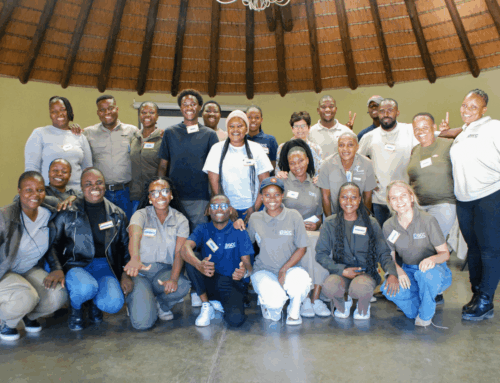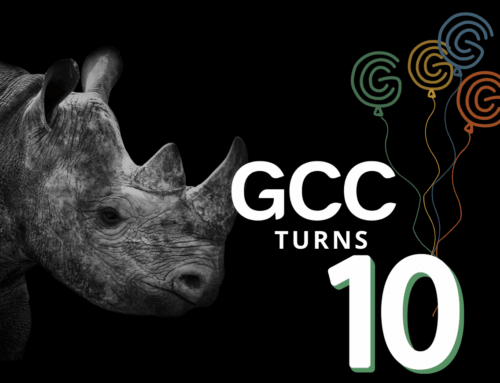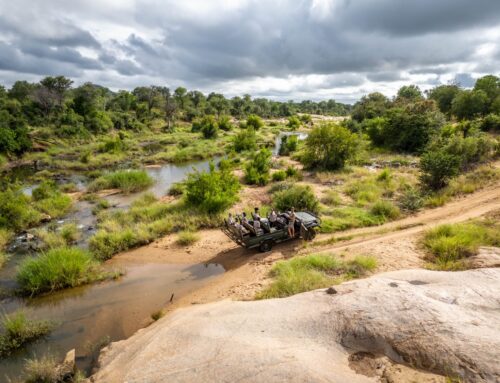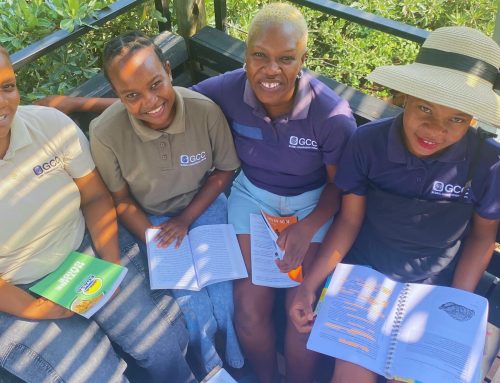Anton Mzimba is a Technical Advisor to GCC and Head of Ranger Services at Timbavati Private Nature Reserve. We talk to him about this challenging year, how the job of a ranger has become more dangerous, and what GCC means to him and his fellow rangers.
How have you been coping with the COVID-19 crisis?
It put a lot of pressure on us and distracted us in our work, as you would expect. When the GCC ranger food drive arrived, our families welcomed it warmly. Each and every time we were out delivering the food rations, some of the families were in tears when they received the food because it was such a big relief for them, especially for their children. Early in the morning, they wanted to eat something but that something was not there because we had this situation where our employers had decreased our salaries to be able to keep us employed. With GCC supplying food to our families, we were very grateful. We felt very privileged, in comparison to some of our colleagues from different organizations, who were let go right from the beginning of the pandemic. For us it was very different. None of us lost a job thanks to our reserve management and GCC did an incredible thing for us by supplying food. We don’t have enough words to say thank you.
Are the tourists coming back?
National tourists can now travel all over South Africa, but the international tourists are still not coming and we rely on them. There are some lodges that were completely closed that are now opening. Some of the lodges call a group of four employees to come into work, and then the next week it is a different four. Gradually things will get back to the way they were before, but what I want to single out is that if you work for one week per month, you only get paid for that week so you have to find a way to survive.
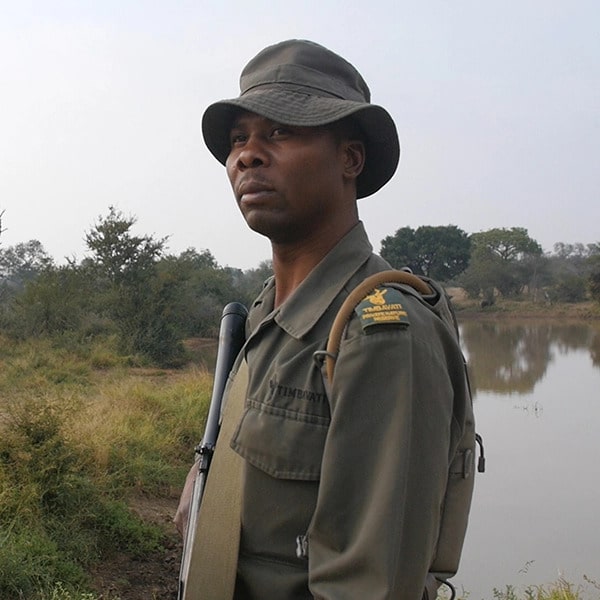
How did you get involved in conservation?
My story starts back when I was still young. Growing up, I enjoyed seeing soldiers with their firearms, showing how proud they were, marching, and all those things. Growing up, I really wanted to be a soldier. Things didn’t work out as planned. When I came here, I started working for an external construction company that had been hired by Timbavati. Mr. Brian Harris, a former warden of Timbavati, was very happy with my work in the construction company, and one day asked to see me.
When I arrived at his office, he was pleased to see me and told me that he was very happy with my work on the construction site. He then asked me if I would like to work permanently for Timbavati. I didn’t hesitate and said yes immediately. This was in 1997 and in 1998 I embarked on field ranger training. So, I started training and I graduated from the Southern African Wildlife College as a field ranger. Since then I have been working as a field ranger. I have grown from strength to strength, from junior field ranger to senior field ranger, to corporal instructor and field ranger corporal, and then a sergeant and now I am the head of ranger services for the organization. I am proud to be here and to be an employee of Timbavati. So, I would say half of what I wanted to be when I was young has been fulfilled because I work with firearms on a daily basis. I am not a soldier, but I still work more or less like a soldier protecting the wildlife. For me this is a great achievement, it is a good thing, so this is how I became a field ranger.
How have things changed since 1998 in your job?
There have been changes and I would say that the situation has gone from bad to worse. Initially, when we started training with Brian Harris, he used to tell us that there would be a war coming. He would say to us, “I am going to train you like soldiers. It is paramilitary training that I am offering to you so that one day when the wildlife war comes, you can stay alive for your families.” At that stage, we were only dealing with subsistence poaching, where people would come to the reserve to poach meat to eat.
As time went by, we noticed that it started to become more about money. We started to see camp break-ins where thieves would come from the villages to the reserves, lodges and camps to break in to steal jewelry, whatever they could find. So it was game meat and house break-ins.
When did the rhino poaching begin?
It wasn’t until later that rhino poaching started with the same people who were previously game meat poachers. We went from subsistence poaching and killing animals for meat to killing animals for money. The big difference with this was the shoot-outs. Before the game meat poachers were not armed with firearms, they would bring spears, dogs and snares to capture the animals, but the poachers coming for the rhinos and their horns are armed with firearms. Our mandate is to arrest poachers, but when you want to arrest someone who is armed, there is always an exchange of gunshots, and that results in fatalities on both sides.
Because of this, the game meat poachers realized that the environment was more dangerous for them to continue their poaching activities, so they joined the rhino poachers, serving as navigators as they knew the land in and out. They often hire someone from abroad or another area who doesn’t know the area, but is a good shooter, and work together, so rhino poaching is increasing daily.
How many times in a week are you called out because there are poachers?
It is difficult to make an average; some weeks are worse than the others. You may find that you have three groups of poachers in one night, or they come on different nights, but in the same area, which makes it difficult because sometimes they work with inside information. When they don’t have information, they can’t do anything.
Some poachers, or groups of poachers, come and try their luck without having any information, so for that kind of group, it is simple because they don’t know the lay of the land and the preparedness of the security personnel inside the reserve. But when you have someone who is internally involved, you have a problem because there will always be fresh information sharing, such as field rangers numbers, patrol composition, type of firearms, time in and out, area of patrol etc. So, I would say we go out to attend to emergency situations with poachers around three times a week depending on whether it is a full moon or dark moon at most and or once a week at less.
What is your connection to GCC and what do you do to help them?
How I help them is by giving advice. GCC’s mandate is to improve the lives of people and their families, and whether they help directly or indirectly, they help everyone. So, I give them advice about what problems the communities are facing, what problems the wildlife is facing, what problems law enforcement is facing etc. When I give GCC this kind of information, they process it and seek ways to solve the problem at hand. When we had a problem with the COVID-19 situation, GCC came up with a plan to supply us with food parcels, so this is the kind of thing that GCC does for us and for which we are very grateful
What is your favorite animal?
I love every animal on the reserve and beyond. But if I had to choose, I would say that I mostly love to see the zebras. There are a couple of things that make me love zebras more than any other animal. If you look at an impala, it is a beautiful animal, but with the zebra, I have learned a lot of things. The zebra is resilient, it shows no sign of weakness, it is always strong, even in a dry season. If you see a wounded zebra after the lions have tried to catch it and leave it with open wounds it will still go on, never giving up, this is why I admire zebras. Also zebras show resilience during the dry season when there is not enough grass to feed, they still remain strong and healthy.

